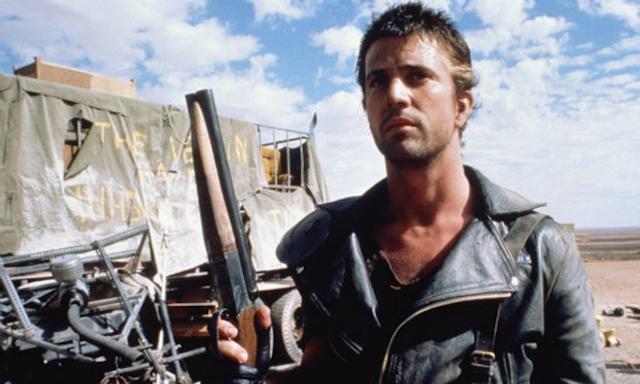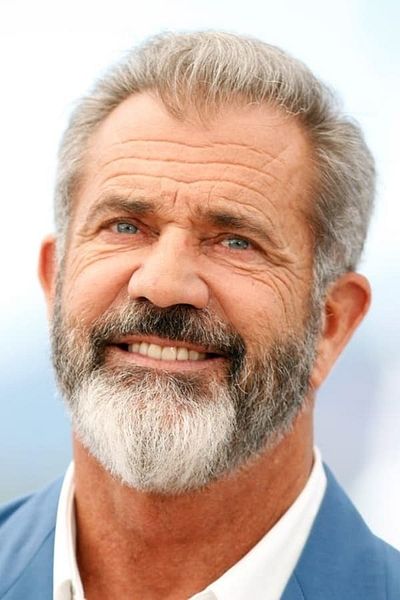Mel Gibson had one of the most public fall from graces in recent years. It's become the stuff of legend.
As the Australian actor turns 60 today, it's almost difficult to quantify just how high he reached and how far he's fallen. Born in New York, Gibson's family emigrated to Sydney when he was 12. At a young age, Gibson was destined for big things. At just 23, Gibson was a well-known name in Australia thanks to a role in popular soap The Sullivans. His real break, however, came with Mad Max - a grubby, post-apocalyptic chase movie about a police officer fighting against a marauding horde in the backwaters of Australia.
The film became an overnight sensation and catapulted Gibson into the limelight both in Australia and in the US. He would work with Peter Weir twice in the space of a year, in 1981's Gallipoli and 1982's The Year of Living Dangerously, before reprising the role of Max Rockatansky in the two sequels that followed. Real stardom, however, came with 1987's Lethal Weapon.
Paired with veteran actor Danny Glover, Lethal Weapon pioneered the buddy-cop genre and would become an international success and turn Gibson into a household name. The sequel, released in 1989, further cemented Gibson's action star credentials. However, Gibson wasn't simply to content to churn out action film after action film. The actor had spent months trying to gather financing for an adaptation of Hamlet that would be directed by Italian master Franco ZeffIrelli. Together with his business manager, Bruce Davey, Gibson founded Icon Entertainment. As Davey describes it, "Mel wanted to make Hamlet and the (Hollywood) agent he had who was helping him with it lasted about five minutes. It's pretty hard to get someone to give you money to make Hamlet. I told him that if he wanted to make this happen, someone had to roll up their sleeves..."
Icon stands alone as one of the few independent production companies that funds its films internally. Gibson himself puts up the money for each film so that the creators can maintain full artistic and creative control over it. Gibson would then begin to stretch out creatively, starring and producing in Forever Young, a melodrama with sci-fi elements that was written by an upcoming JJ Abrams. Icon, meanwhile, would go on to produce Immortal Beloved, a critically-raved account of Beethoven's life with a strong performance by Gary Oldman.
Throughout the '90s, Gibson starred in a string of financially successful films like Ransom, Conspiracy Theory and, of course, Braveheart. Masterfully directed, Braveheart would go on to win five Oscars including a Best Director gong for Gibson himself. By 2000, Gibson was commanding huge salaries for his work but he continued to struggle with alcohol throughout. Gibson says he began drinking when he was 13 years old. He would later confide in Richard Donner, the director of Lethal Weapon, that he was drinking at least five or six pints of beer for breakfast. The first of his controversies happened in 1991 when Gibson made a homophobic remark during an interview. Years later, Gibson would admit that he was "tickling a bit of vodka during that interview..." In 2002, Gibson admitted during an interview that he was a manic depressive.
In 2006, Gibson was arrested for driving under the influence and with an open container of alcohol in the car. During his arrest, Gibson said that his "life was over. I'm fucked. Robyn's (his wife at the time) going to leave me." He would then become agitated and angry, screaming that Jews were responsible for all the wars in the world. As Gibson described it in a later interview, he made the comments "in a moment of insanity" and described his words as "despicable." His wife would leave him the next day after twenty-six years of marriage, filing for divorce three years later. The eventual divorce settlement totalled over $400 million, one of the highest ever recorded in Hollywood history.
Gibson's personal troubles would go from bad to worse, with a highly publicised legal battle with his former girlfriend, Oksana Grigorieva. In 2010, audio recordings were released on the Internet that were allegedly Gibson making racist comments towards Grigorieva. The same day the audio was released, Gibson was dropped by his agency, William Morris Endeavour. Gibson would later contend that the audio recordings were edited and that he was in the middle of a breakdown when they were recorded. By 2011, Gibson settled his case with Grigorieva. Of the legal case, Gibson said that he "could have continued to fight this for years and it probably would have come out fine. But I ended it for my children and my family. This was going to be such a circus. You don't drag other people in your life through this sewer needlessly, so I'll take the hit and move on."
Gibson did not star in any film from 2004 until 2010. His supposed comeback, Edge of Darkness, was met with limited critical response and just barely made back its budget. In 2011, it was reported that Gibson would have a small cameo role in The Hangover, Part II. However, cast members blocked the cameo and refused to work if Gibson was involved. Todd Phillips, the director would later say that he " had the full backing of Jeff Robinov (Warner Bros. President at the time) and his team. But I realize filmmaking is a collaborative effort, and this decision ultimately did not have the full support of my entire cast and crew." Gibson was reportedly furious.
In 2011, Gibson starred in The Beaver, a film about an advertising executive who uses a beaver puppet to communicate with his friends and family whilst he goes through a nervous breakdown. The film had parallels with Gibson's own personal state and drew favourable, if muted, reviews from critics. Despite this, the film didn't perform as many audiences were still reviled by Gibson in the face of his recent controversies. In 2011, during an awards ceremony, his friend Robert Downey Jr. made an impassioned plea for Hollywood to forgive Gibson. "I humbly ask that you join me, unless you are completely without sin, and in which case you picked the wrong fucking industry, in forgiving my friend of his trespasses and offering him the same clean slate that you have me and allowing him to continue his great and ongoing contribution to our collective art without shame."
Gibson would go on to star in modern-day B-movies Machete Kills and The Expendables 3, however in both cases, Gibson played the role of a villain and was often killed off in a gruesome fashion. In many interviews, however, Gibson stated that acting was no longer his driving force in his career. It was announced early last year that Gibson would return to the directing chair for the first time in almost ten years with Hacksaw Ridge. The film, currently in production, sees Andrew Garfield star as a young medical officer in World War II who became the first conscientious objector to win the Congressional Medal of Honor. With a script co-written by Randall Wallace, the writer behind Braveheart, and a talented cast including Vince Vaughn, Hugo Weaving, Gibson's fortunes may finally be turning a corner.



















































































